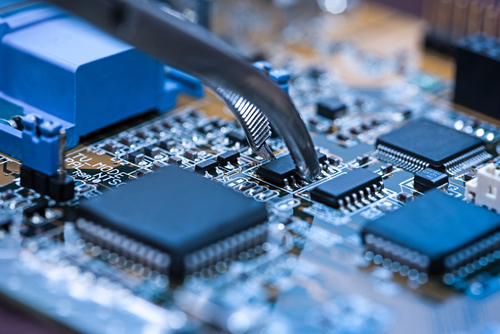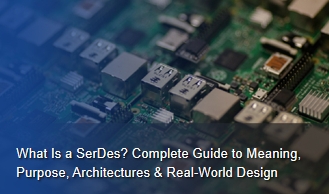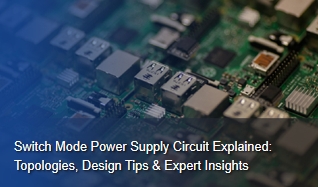Understanding the Functions of an Integrated Circuit Chip

Integrated circuit chips, often referred to as IC chips, are the backbone of modern electronic devices. These tiny yet powerful components are integral to the operation of everything from simple household gadgets to complex industrial machinery and advanced computing systems. In essence, an integrated circuit chip is a set of electronic circuits on a small flat piece (or "chip") of semiconductor material, usually silicon. These chips are essential for controlling and processing data, making them the heart of any electronic system.
In this comprehensive guide, we will delve deep into the various functions of integrated circuit chips, exploring their roles in different types of electronic devices. We will also discuss how to choose the right IC chip for your needs and the importance of selecting a reliable integrated circuit distributor. Finally, we'll conclude with some frequently asked questions (FAQs) about integrated circuit chips to help you make informed decisions.
1. Computational Functions of Integrated Circuit Chips
One of the primary functions of an integrated circuit chip is to perform computations. These computations can range from simple arithmetic operations to complex data processing tasks. The ability of IC chips to execute these functions efficiently is what enables modern computers, smartphones, and other devices to operate at high speeds and perform a variety of tasks.
Arithmetic and Logic Units (ALUs)At the core of an integrated circuit chip's computational function are the Arithmetic and Logic Units (ALUs). ALUs are designed to handle basic mathematical operations such as addition, subtraction, multiplication, and division, as well as logical operations like AND, OR, and XOR. These units are essential for the chip's ability to process data and execute instructions.
Data Processing and Control
Integrated circuit chips contain multiple processing units that work together to manage data flow and execute instructions. These units allow the chip to process large amounts of data quickly and efficiently, making them indispensable for applications that require real-time data processing, such as video streaming, gaming, and scientific simulations.
2. Storage Functions of Integrated Circuit Chips
Integrated circuit chips are also equipped with various storage functions, enabling them to store and retrieve data as needed. This storage capability is crucial for maintaining the integrity of data during processing and ensuring that instructions can be executed without delay.
Random Access Memory (RAM)RAM is a type of volatile memory that is used by integrated circuit chips to store data temporarily while the device is running. The data stored in RAM can be accessed quickly by the processor, making it ideal for tasks that require fast read and write operations. RAM is essential for the smooth operation of applications and operating systems, as it allows the device to switch between tasks efficiently.
Read-Only Memory (ROM) and Flash Memory
ROM and flash memory are non-volatile types of memory used in integrated circuit chips. ROM stores critical data that does not change frequently, such as the device's firmware, while flash memory is used for storing larger amounts of data that need to be retained even when the device is powered off. These types of memory are crucial for maintaining the functionality of electronic devices, as they ensure that important data is not lost when the device is turned off.
3. Communication Functions of Integrated Circuit Chips
Integrated circuit chips are equipped with various communication interfaces that allow them to transmit and receive data between different components within a device or between devices.
Serial and Parallel Communication InterfacesIC chips often feature communication interfaces such as Serial Peripheral Interface (SPI), Inter-Integrated Circuit (I2C), and Universal Asynchronous Receiver-Transmitter (UART). These interfaces enable the chip to communicate with other components in a device, such as sensors, actuators, and other integrated circuits.
Wireless Communication
In addition to wired communication interfaces, some integrated circuit chips also support wireless communication protocols such as Wi-Fi, Bluetooth, and NFC. These capabilities are crucial for devices that require wireless data transmission, such as smartphones, tablets, and IoT devices.
4. Control Functions of Integrated Circuit Chips
Integrated circuit chips play a vital role in controlling various functions within an electronic device. These control functions are essential for ensuring that the device operates correctly and efficiently.
Timers and CountersMany IC chips are equipped with timers and counters that are used to measure time intervals and count events. These features are critical for tasks such as managing system clocks, generating precise time delays, and scheduling operations within the device.
Watchdog Timers
Watchdog timers are a special type of timer found in some integrated circuit chips. They are used to detect and recover from system malfunctions. If the system fails to reset the watchdog timer within a specified time frame, the timer will trigger a system reset, helping to prevent system crashes and ensuring the device continues to operate reliably.
5. Security Functions of Integrated Circuit Chips
As electronic devices become more interconnected, the need for robust security measures has increased. Integrated circuit chips are now being designed with advanced security features to protect sensitive data and prevent unauthorized access.
Encryption and DecryptionMany IC chips are equipped with encryption and decryption capabilities to secure data as it is transmitted or stored. These features are essential for protecting sensitive information, such as financial transactions, personal data, and confidential communications.
Anti-Tampering MechanismsSome integrated circuit chips also include anti-tampering mechanisms that detect and respond to attempts to physically alter or interfere with the chip's operation. These mechanisms are critical for maintaining the integrity and security of devices used in applications such as banking and secure communications.
6. Sensing and Detection Functions of Integrated Circuit Chips
In addition to processing, storage, communication, and control functions, some integrated circuit chips are designed to perform sensing and detection tasks. These functions are critical for applications that require real-time monitoring and data collection.
Environmental SensorsIntegrated circuit chips can include various types of sensors, such as temperature sensors, humidity sensors, and pressure sensors. These sensors allow the chip to monitor environmental conditions and make adjustments as needed to maintain optimal performance.
Motion and position sensors
IC chips can also be equipped with motion and position sensors, such as accelerometers and gyroscopes. These sensors are used in applications ranging from smartphone screen orientation to advanced navigation systems in autonomous vehicles.
7. Selecting the Right Integrated Circuit Chip for Your Needs
When choosing an integrated circuit chip, it is essential to consider the specific requirements of your application. Different IC chips offer different combinations of features, and selecting the right chip can significantly impact the performance and reliability of your device.
Application-Specific ConsiderationsIdentify the key functions your device needs to perform and select an integrated circuit chip that offers the necessary capabilities. For example, if your application requires high-speed data processing, choose a chip with a powerful CPU and ample RAM. If security is a priority, look for a chip with robust encryption and anti-tampering features.
Compatibility with Other ComponentsEnsure that the integrated circuit chip you choose is compatible with the other components in your device. This includes checking for compatible communication interfaces, voltage levels, and pin configurations. Incompatible components can lead to system malfunctions or degraded performance.
Working with a Reliable Integrated Circuit Distributor
Partnering with a reputable integrated circuit distributor is crucial to ensuring that you receive high-quality IC chips that meet your specifications. A trusted distributor will offer a wide range of products, provide detailed technical information, and offer support to help you select the right chip for your needs.
Conclusion: The Importance of a Reliable Integrated Circuit Distributor
The integrated circuit chip is the cornerstone of modern electronics, powering everything from simple gadgets to complex industrial systems. Understanding the various functions of IC chips—from computation and storage to communication, control, and security—can help you make informed decisions when selecting the right chip for your application.
To ensure you receive the best quality integrated circuit chips, it is essential to work with a reliable integrated circuit distributor. unikeyic Electronics is a trusted supplier known for providing a comprehensive selection of high-quality IC chips and excellent customer support. By partnering with Unikeyic Electronics, you can ensure that your projects are equipped with the best components, helping you achieve optimal performance and reliability in your designs.
Integrated Circuit Chip FAQ
1. What is an integrated circuit chip?An integrated circuit chip, or IC chip, is a small electronic component that contains a set of electronic circuits on a semiconductor material, typically silicon. These circuits are used to perform various functions, such as processing, storage, communication, and control, in electronic devices.
2. What are the common types of integrated circuit chips?There are several types of integrated circuit chips, including microprocessors, memory chips, logic chips, and analog chips. Each type serves a different purpose, with microprocessors handling computations, memory chips storing data, logic chips performing logical operations, and analog chips processing analog signals.
3. How do I choose the right integrated circuit chip for my application?Choosing the right IC chip involves considering the specific requirements of your application, such as processing power, memory capacity, communication interfaces, and security features. It's also important to ensure compatibility with other components in your device and to work with a reliable distributor.
4. What are the benefits of using integrated circuit chips?Integrated circuit chips offer numerous benefits, including compact size, low power consumption, high reliability, and the ability to integrate multiple functions into a single component. These advantages make IC chips essential for modern electronic devices.
5. Why is it important to work with a reliable integrated circuit distributor?A reliable integrated circuit distributor ensures that you receive high-quality components that meet your specifications. They provide technical support, a wide selection of products, and the assurance that you are purchasing genuine, tested parts that will perform as expected in your application.






















